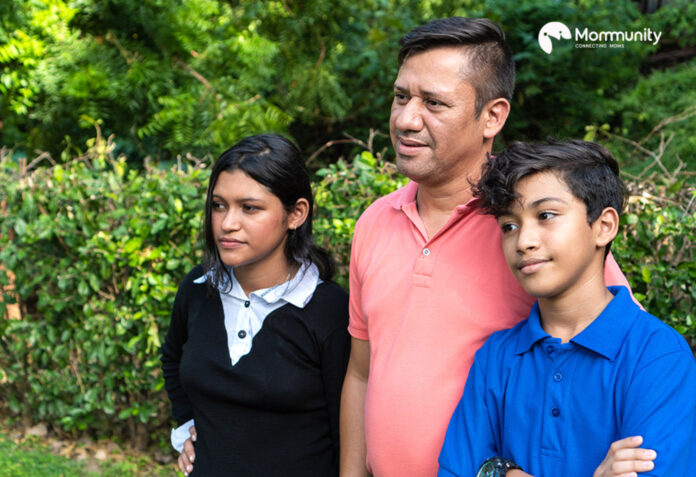Do you find your teen rebelling against freedom? Is it hard for teenagers to maintain discipline? Raising teenagers may be a difficult task. On the one hand, you need to instill teaching in your teenagers to guarantee that they develop a sense of obligation and respect.
On the other hand, you, too, have to give them the flexibility to investigate, make choices, and create freedom. Striking the proper balance between teaching and flexibility can be challenging, but it is fundamental for their improvement.
In this blog, you will learn more about discipline in teenagers with freedom.
Understanding Discipline and Freedom
Discipline is often associated with rules, restrictions, and consequences. However, it’s more about teaching teenagers self-control, responsibility, and respect for others. Effective discipline helps teenagers understand boundaries and the importance of adhering to societal norms. It’s about guiding them to make the right choices, even when no one is watching.
On the flip side, freedom involves granting teenagers the autonomy to make their own decisions and learn from their experiences. Freedom is crucial for fostering independence, critical thinking, and self-confidence. It allows teenagers to explore their interests, make mistakes, and develop a sense of identity.
The Importance of Balancing Discipline and Freedom
Discipline gives teenagers the structure they need to explore their complex world. It makes a difference for them to set boundaries, regard rules, and appreciate the results of their activities. A disciplined environment cultivates a sense of security and consistency, which is especially critical amid the turbulent teenage years.
In addition, teaching makes a difference Teenagers develop fundamental life abilities such as time administration, diligence, and duty. When actualized accurately, a disciple isn’t almost controlling teenagers but engaging them to control their claim behavior.
The Role of Freedom in Teenagers’ Development
Freedom permits teenagers to investigate their character, interface, and values. It gives them the space to form choices, participate in the results, and learn from their mistakes. This independence is pivotal for creating self-confidence, problem-solving abilities, and versatility. When young people are given suitable levels of opportunity, they feel trusted and regarded, which fortifies their self-esteem and energizes them to require duty for their activities.
Finding the Balance: Practical Strategies
1. Communicate Transparently and Truly
Compelling communication is the establishment of adjusting teaching and flexibility. Normal, open discussions around desires, values, and boundaries offer assistance to youngsters in understanding the reasons behind rules and the significance of making great choices. Energize your youngster to precise their contemplations and sentiments, and tune in effectively. This common trade cultivates a relationship of belief and regard.
2. Set Clear and Sensible Desires
Set up clear rules and results that are sensible and age-appropriate. Be reliable in implementing these rules, but moreover, be adaptable when vital. For instance, as your teen illustrates obligation and great judgment, steadily increase their opportunities. It appears that discipline isn’t almost in control but is almost directing them toward development.
3. Encourage Accountability and Responsibility
Empowering teens to require an obligation for their activities is basic. Permit them to engage in the characteristic results of their choices at whatever point is secure and suitable. This instructs them that their activities have real-world impacts and make a difference, thus creating responsibility. For illustration, if they miss a check-in time, talk about the significance of reliability and belief instead of quickly turning to discipline.
4. Provide Opportunities for Independence
Slowly grant your teen more independence and flexibility as they illustrate their capacity to handle them. This might include overseeing their possession plans, making choices approximately according to their instructions or side interests, or taking care of part-time work. These openings educate vital life abilities and strengthen the idea that with freedom comes discipline.
5. Support Their Interests and Passions
Energize your teen to seek out their interface and interests. This not only makes a difference; it helps them create a sense of personality, but it also educates them on commitment and teaches them something they appreciate. Bolster their endeavors by giving assets, appearing intrigued, and celebrating their accomplishments.
6. Encourage Problem-Solving and Critical Thinking
Educate your teen to approach issues keenly and basically. Rather than giving prompt arrangements, inquire about questions that direct them to think through issues and come up with their own arrangements. This approach not only builds their problem-solving abilities but also reinforces their capacity to make sound choices freely.
7. Celebrate Advance and Exertion
Recognize and celebrate your teenager’s endeavors and advance, no matter how little. Positive support builds certainty and inspiration. Recognize their difficult work, commitment, and the steps they take towards becoming more taught and capable people.
The Final Note
In the end, finding the idealized adjustment between discipline and freedom in a teenager is fundamental for their all-encompassing advancement. Discipline ingrains a sense of obligation, self-control, and regard for societal standards, whereas flexibility permits youngsters to investigate their character, make choices, and learn from their encounters. This adjustment cultivates a sustaining environment where teenagers can flourish, feel trusted, and end up becoming certain, self-reliant people.
By communicating straightforwardly, setting clear desires, empowering obligations, giving openings for autonomy, supporting their interface, and celebrating their endeavors, guardians can successfully adjust their teaching with opportunity. This approach not only makes a difference in teenagers exploring the complexities of puberty but also reinforces the parent-teen relationship, laying a strong foundation for their future.
Keep in mind, that discipline isn’t almost controlling your teenager, and independence isn’t about letting them go unchecked. It’s almost directing them with intelligence and understanding. We hope that this blog will help you understand how discipline in teenagers works.




